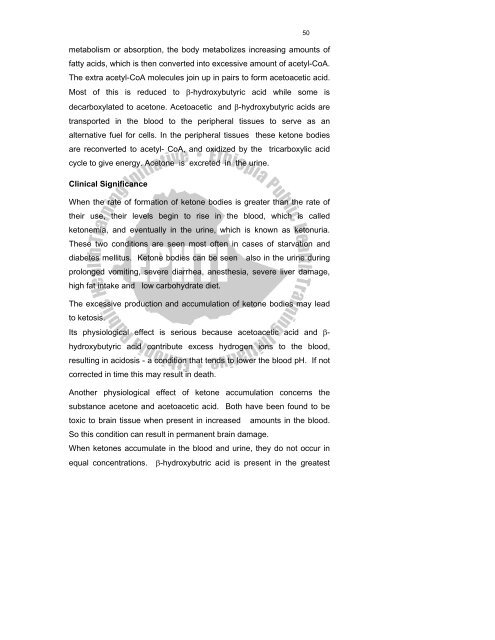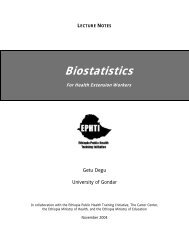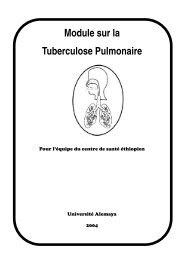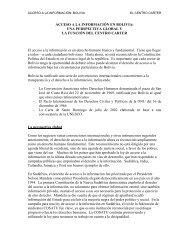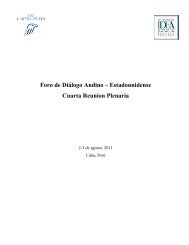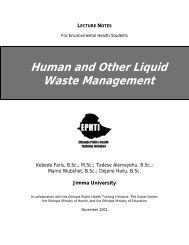Urinalysis - The Carter Center
Urinalysis - The Carter Center
Urinalysis - The Carter Center
Create successful ePaper yourself
Turn your PDF publications into a flip-book with our unique Google optimized e-Paper software.
metabolism or absorption, the body metabolizes increasing amounts of<br />
fatty acids, which is then converted into excessive amount of acetyl-CoA.<br />
<strong>The</strong> extra acetyl-CoA molecules join up in pairs to form acetoacetic acid.<br />
Most of this is reduced to β-hydroxybutyric acid while some is<br />
decarboxylated to acetone. Acetoacetic and β-hydroxybutyric acids are<br />
transported in the blood to the peripheral tissues to serve as an<br />
alternative fuel for cells. In the peripheral tissues these ketone bodies<br />
are reconverted to acetyl- CoA, and oxidized by the tricarboxylic acid<br />
cycle to give energy. Acetone is excreted in the urine.<br />
Clinical Significance<br />
When the rate of formation of ketone bodies is greater than the rate of<br />
their use, their levels begin to rise in the blood, which is called<br />
ketonemia, and eventually in the urine, which is known as ketonuria.<br />
<strong>The</strong>se two conditions are seen most often in cases of starvation and<br />
diabetes mellitus. Ketone bodies can be seen also in the urine during<br />
prolonged vomiting, severe diarrhea, anesthesia, severe liver damage,<br />
high fat intake and low carbohydrate diet.<br />
<strong>The</strong> excessive production and accumulation of ketone bodies may lead<br />
to ketosis.<br />
Its physiological effect is serious because acetoacetic acid and β-<br />
hydroxybutyric acid contribute excess hydrogen ions to the blood,<br />
resulting in acidosis - a condition that tends to lower the blood pH. If not<br />
corrected in time this may result in death.<br />
Another physiological effect of ketone accumulation concerns the<br />
substance acetone and acetoacetic acid. Both have been found to be<br />
toxic to brain tissue when present in increased amounts in the blood.<br />
So this condition can result in permanent brain damage.<br />
When ketones accumulate in the blood and urine, they do not occur in<br />
equal concentrations. β-hydroxybutric acid is present in the greatest<br />
50


